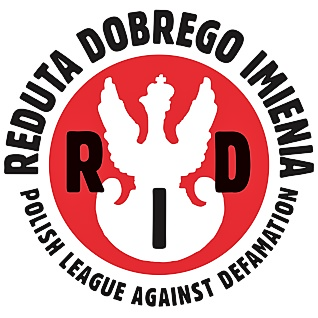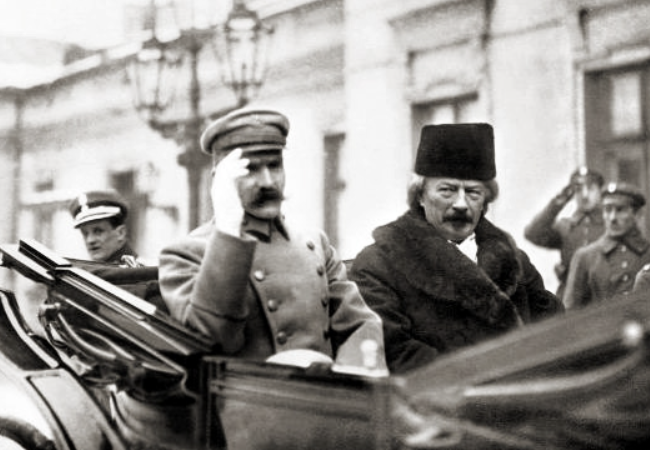12 May 2023 | News
12 May has a special anniversary significance, as on this day we remember Polish patriots – people who sacrificed their lives for Poland. They were Polish heroes who, in the face of danger, were ready to serve and sacrifice themselves for the good of the fatherland. Each of these eminent figures went down in the history of our homeland, fighting for the freedom, sovereignty and independence of the Republic of Poland.
Through their services to their homeland, they became role models for those who wish to be guided by patriotic values, which can be demonstrated in many ways, such as caring for national identity, defending and disseminating the truth about Poland and Poles, taking part in social activities, cultivating the mother tongue, or showing devotion to our homeland, its history, culture and traditions.
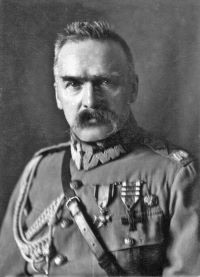
12 May 1935
Marshal Jozef Pilsudski died
Today is the 86th anniversary of the death of Józef Piłsudski, one of the most important figures in Polish history. Piłsudski was one of the most influential politicians, military commanders and fighters for Polish independence in the 20th century. His life and work were dedicated to fighting for Polish freedom and independence, and building the strength of the Polish state.
Józef Piłsudski was a social activist, soldier, politician and one of the fathers of Polish independence. Many of his activities were directed at unifying and strengthening Polish forces, and in particular at creating a modern army that could effectively defend the country.
Józef Piłsudski created the state, developed its infrastructure and economy, and took care of Poland’s security. He went down in history as a man indomitable in the fight for a free Poland, a great patriot who devoted his life to the good of his homeland. He was sober in his assessment of the country’s situation, including its geopolitical situation, and pointed out the threats to Poland’s resurgent independence, saying, among other things, that „Poland may, perhaps, be in danger”.
„Poland, perhaps, will also face hard times. During crises – I repeat – beware of agents. Go your way, serving only Poland, loving only Poland and hating those who serve foreigners.”
Jozef Pilsudski was born in 1867 in Zułów near Vilnius. In his youth, thanks to his mother (from the Billewicz family), he became interested in politics and Polish history. At the age of 16 he joined the Polish Socialist Party. In 1887 he was arrested for association with the assassination of Tsar Alexander II and then, for five years, was exiled to Eastern Siberia.
Jozef Pilsudski was arrested again on February 22, 1900, in the Lodz printing office of the underground magazine Robotnik, of which he was editor. After an investigation, he was transported to the 10th Pavilion of the Warsaw Citadel. Pilsudski, simulating a mental illness, was taken from the Citadel to a hospital in St. Petersburg, from where he escaped to Galicia in May 1901.
Upon his return to the country, he became involved in political and military activities.
In 1914, when Poland was divided between Russia, Germany and Austria-Hungary, the Polish Legions were formed, created by Pilsudski, who, together with a group of other activists, decided to organize a Polish armed force that would fight alongside Austria-Hungary against Russia. The Legions consisted of volunteers, mostly Poles living in the Austrian partition, who went to the front to fight for Poland’s freedom and independence. The Legions became a military force of several thousand soldiers. Although the Polish Legions were a short-lived endeavor, they had a huge impact on later events in Poland. Thanks to them, Poles gained military experience and skills.
After Poland regained its independence, Jozef Pilsudski, as Chief of State, directed state policy and introduced reforms to modernize and strengthen Poland internationally. Thanks to his vision and determination, Poland began to play an increasingly important role in Europe and the world.
In 1920, during the Polish-Bolshevik war, Pilsudski commanded the Polish army, which achieved victory over the Red Army near Warsaw and at the Niemen River. This success helped maintain Poland’s independence and stop the march of the communist movement in Europe.
Jozef Pilsudski died on May 12, 1935, at the Belvedere in Warsaw.
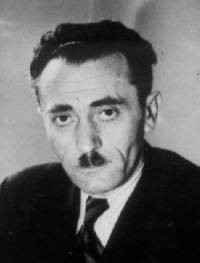
May 12, 1943
Shmul Zygielbojm, representative of the Bund in the authorities of the Republic of Poland in Exile, committed suicide.
Shmul Mordechai Zygielbojm – was a Polish social and political activist of Jewish descent who worked to save the lives and freedom of his people during World War II. He died tragically at the age of 48, committing suicide in protest of the British government’s lack of response to the mass murders carried out by the German Nazis in Jewish ghettos in German-occupied Poland.
We recommend the feature film entitled. „DEATH OF ZYGIELBOJM,” which tells the tragic story of a Jewish political activist who committed suicide to protest the world’s inaction in the face of the Holocaust tragedy.
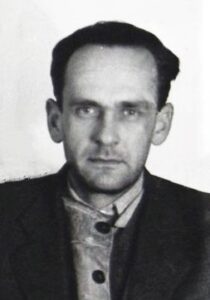
May 12, 1948.
The Communists murdered Stanislaw Kasznica, the last commander of the National Armed Forces, after a sham trial.
Stanislaw Jozef Bronislaw Kasznica, using the aliases: „Stanisław Wąsacz,” „Wąsowski,” „Przepona,” „Służa,” „Maszkowski,” „Borowski,” „Stanisław Piotrowski” – the last commander-in-chief of the National Armed Forces. He took part in the defensive war in September 1939, where he fought, among others, in the Battle of Bzura, and in the defense of Warsaw, for which he was awarded the Silver Cross of the Order of Virtuti Militari. During the German occupation, he was active in the underground. Among other things, he was one of the founders of the Jaszczurczy Union, and was also a member-founder of the Provisional National Political Council. He fought in the Warsaw Uprising. With the end of the war, he did not abandon underground activity. In 1946 he served as commander-in-chief of the National Armed Forces. Arrested by the Secret Police on February 15, 1947, tortured, he was sentenced to death by a „verdict” of a communist court on March 2, 1948.
He was murdered on May 12, 1948 in Mokotow prison. On September 30, 1992, the Warsaw Military District Court declared the verdict invalid.
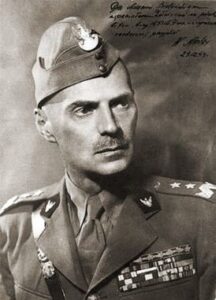
May 12, 1970
General Wladyslaw Anders, commander of the Second Polish Corps, winner of the Battle of Monte Cassino, has died.
Wladyslaw Albert Anders- Polish military officer and politician, Major General of the Polish Army, decorated with the Commander’s Cross of the Order of Virtuti Militari, one of the most distinguished Polish heroes during World War II, fought in the defensive war of 1939, to him we owe the removal of thousands of Polish citizens from the USSR. Under his orders, the Polish soldier gave evidence of valor, and the marching route of the Anders army is marked with traces of victories such as the capture of Monte Cassino.
A sharp critic of the Yalta Conference. Faced with the capture of General Tadeusz Bór-Komorowski, he served as Commander-in-Chief from February 26 to May 27, 1945. After the end of World War II, he remained in exile; on September 26, 1946, Polish President Władysław Raczkiewicz appointed him Inspector General of the Armed Forces and Commander-in-Chief. He was seen as an enemy and a threat to the communist usurpers who had begun their rule in the Country. On September 26, 1946, the Provisional Government of National Unity – that is, the communist „Lublin Government,” on the basis of the 1920 Act on Citizenship of the Polish State, deprived Anders of Polish citizenship and the rank of general in connection with „accepting, without the consent of the competent Polish authorities, a public office in a foreign country, and this undertaking the function of co-organizing the Polish Resettlement Corps, which was a paramilitary formation forming part of the British Army.”
He remained in exile until the end of his life. He died exactly on the 26th anniversary of the Battle of Monte Cassino, In accordance with his will, Gen. Anders was buried among his soldiers at the Polish War Cemetery on Monte Cassino, Italy.
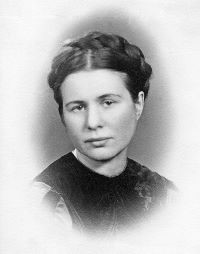
May 12, 2008
Irena Sendlerowa, who saved two and a half thousand Jewish children from the Warsaw ghetto, has died.
Irena Stanisława Sendlerowa a.k.a. „Jolanta” – Polish social and charitable activist, member of the Polish Socialist Party (PPS), during World War II head of the children’s department of the Council for Aid to Jews at the Government Delegation for Poland („Zegota”). From the beginning of the German occupation, she helped Jews by delivering food, medicines, typhoid vaccinations and other necessities for survival to the Warsaw Ghetto. She coordinated the efforts to include Jewish children in the activities carried out by the Closed Care Referral for Children and Youth of the Department of Welfare and Health, preparing false resumes for the children, enabling them to be sent to care institutions as Polish orphans. She took the children out of the ghetto in a variety of ways, smuggling them in crates on sanitary ambulances or streetcars passing through the ghetto, through basements connected by underground tunnels to the „Aryan” side, or through sewers. More than 1,000 children were under the constant care of „Zegota,” whose children’s desk she headed from 1943.
On October 21, 1943, she was arrested by the Gestapo. Interrogated and beaten at Gestapo headquarters on Szucha Avenue, she was rescued by „Zegota,” who paid a high bribe to the Gestapo officer who released her. A paramedic in the Warsaw Uprising. According to postwar accounts, as a result of the activities of „Zegota” and its cooperating organizations, an attempt was made to save about 2,500 Jewish children (not all survived the war). About 1,300 found help in Polish families, about 500 in institutions run by religious congregations, about 500 in the institutions of the Central Welfare Council, about 200 in the Urban Welfare Emergency in the Rev. Boduen House, and about 100 teenagers aged 15-16 were sent to the partisans. A Righteous Among the Nations, she was a lady of the Order of the White Eagle and the Order of the Smile. She died on May 12, 2008, and was buried at Powązki Cemetery in Warsaw.
